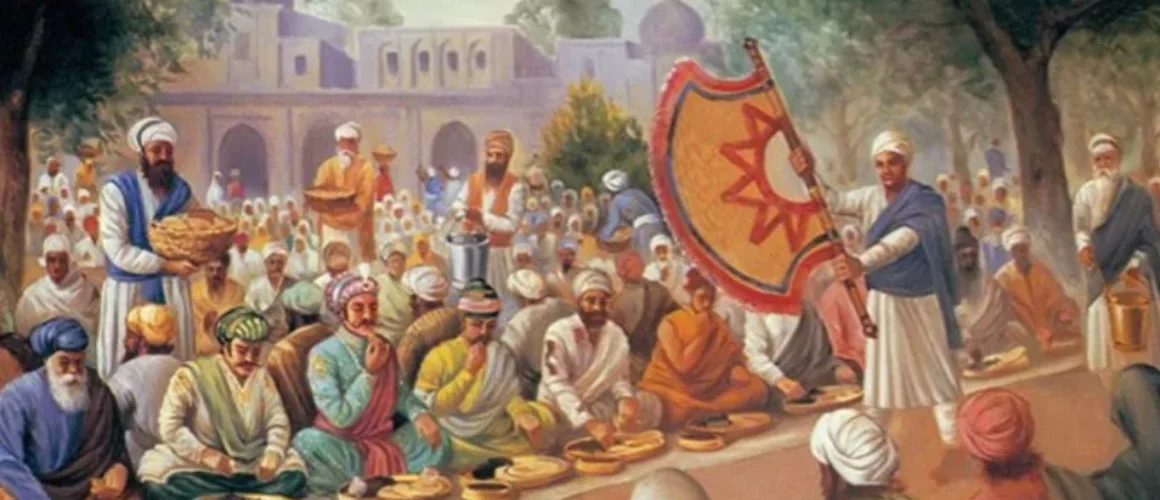Can Sikhs Eat Before Nitnem?
Understanding the Discipline and Devotion Behind This Practice
In Sikhism, daily discipline and devotion through Nitnem (a series of Sikh prayers recited daily) form the core of spiritual life. A common question that arises within the Sikh community is whether one should eat before completing Nitnem in the morning. Although opinions on this may vary, a consistent thread in Sikh teachings and history emphasises the importance of spiritual nourishment before physical food.
Understanding the Hukum: Gurdwara Maryada and Daily Sikh Life
Many believe that the traditional Maryada (code of conduct) practiced within Gurdwaras applies to individual Sikhs in their daily lives. This perspective views Gurdwara Maryada as an extension of how each Sikh should approach their daily routine, prioritising prayer and devotion over worldly pursuits. When a Sikh takes Amrit (baptism) during the Amrit Sanchar ceremony, they are symbolically reborn in the house of Guru Nanak, adopting a commitment to follow the Guru’s path with sincerity. This includes practices such as partaking in food (often given as parshaad, or holy offering) only after completing daily prayers, starting the day with Nitnem and the recitation of Panj Bania (the five foundational prayers).
The practice of Nitnem before eating is a discipline that aligns with Guru Nanak’s teachings. When we engage with Gurbani (the Sikh scriptures), we are not merely reciting words but consuming a spiritual “food” that fulfills the soul’s deeper needs. Learning to delay physical sustenance, even for a few hours, develops patience and strengthens one’s devotion to the Guru. This perspective is supported by historical references and examples, including the Rehatnamas (codes of conduct) and Janam Sakhis (biographical accounts) of the Gurus.
Gurbani and Rehatnama References on Eating and Daily Prayers
The teachings within Gurbani and the Rehatnamas consistently underscore the importance of prioritising devotion. Some specific quotes from Gurbani and historical texts elaborate on this idea:
- Ang 306: “Those who eat and dress without serving the Satguru remain trapped in the cycle of reincarnation and live as if afflicted.” Here, “serving” Satguru is interpreted as immersing oneself in Naam and Gurbani, suggesting that focusing on material comforts before spiritual commitment traps one in cycles of worldly struggles.
- Rehatnama by Bhai Prahalad Singh Ji: “One who consumes food without daily prayers loses their Sikhi and is reborn as a maggot.” This harsh imagery serves to remind Sikhs of the consequence of neglecting daily prayers, emphasising that spiritual degradation follows from prioritising physical needs over devotion.
- Further Teachings: Bhai Prahalad Singh Ji also mentions that those who skip early morning prayers or consume food without reciting evening prayers like Rehras Sahib continue in the cycle of birth and death.
These teachings remind us of the critical role of daily devotion in Sikh life. They suggest that starting the day without Nitnem may result in an attachment to worldly distractions, which the discipline of morning Nitnem can help one overcome.
The Story of Bhai Mardana Ji: An Illustrative Lesson
The historical accounts of Guru Nanak’s travels, as recorded in the Janam Sakhis, provide profound examples of the value placed on daily prayers. When Guru Nanak would travel with Bhai Bala Ji and Bhai Mardana Ji, their journey was marked by periods of intense devotion, including daily recitations of Sodar Rehras (the evening prayer).
One such story recounts a day when Bhai Mardana, exhausted and hungry after a long journey, found it difficult to recite Rehras. Guru Nanak, understanding his struggle, instructed him to seek sustenance from a mystical figure. During this encounter, Bhai Mardana was reminded by the devta (a celestial being) of the importance of obeying Guru Ji’s hukam (command) and the transformative power of regular prayers like Rehras and Aarti. Bhai Mardana’s experience taught him that obeying Guru Ji’s commands brings spiritual elevation and contentment, even amidst physical hardship.
The Balance Between Physical and Spiritual Food
The practice of not eating before Nitnem is less about restricting food intake and more about establishing priorities—spiritual discipline before physical comfort. Through Gurbani, one consumes a type of spiritual nourishment that strengthens the mind and soul. When one begins the day with a disciplined mind centered on the teachings of the Guru, they are better equipped to face worldly challenges with clarity and inner peace.
Embracing the Discipline: Building a Strong Spiritual Foundation
For Sikhs, maintaining this daily discipline of prioritising spiritual practices like Nitnem over physical needs is essential. The routine of beginning the day with Nitnem enables Sikhs to align themselves with the teachings and path laid out by the Guru, fortifying their resolve and helping them live a life grounded in faith.
Learning to embrace such discipline can be challenging at first, especially in a world that emphasises instant gratification and material comforts. But, as the teachings remind us, true contentment arises when we follow the Guru’s path with sincerity and consistency. Over time, Sikhs who adopt this discipline often find that their spiritual connection deepens, bringing a sense of fulfillment that transcends the temporary satisfaction of physical sustenance.
Conclusion
In Sikhism, the practice of completing Nitnem before eating is deeply rooted in the spiritual teachings of the Gurus. This discipline reflects a commitment to placing spiritual well-being above worldly comforts. While it may require patience and dedication, prioritising Nitnem fosters a deeper connection with the Guru and strengthens one’s faith. For those seeking to deepen their spiritual practice, embracing this tradition can lead to a profound experience of Anand—the inner bliss and contentment that comes from living in harmony with the Guru’s will.
